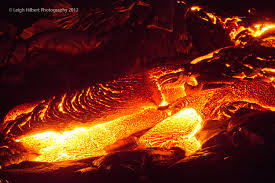记忆方法
将“lava”分解为“la”和“va”,想象火焰中的“la”变成流动的岩浆“va”,火焰中的岩浆流动形成“lava”。这种视觉联想可以帮助记忆单词“lava”的意思。
以上内容由AI生成, 仅供参考和借鉴
中文词源
lava 岩浆,熔岩
来自PIE*leu,冲洗,涌出,词源同lavatory,dilute,antediluvian.用于指岩浆。
英语词源
- lava (n.)
- 1750, from Italian (Neapolitan or Calabrian dialect) lava "torrent, stream," traditionally from Latin lavare "to wash" (see lave). Originally applied in Italian to flash flood rivulets after downpours, then to streams of molten rock from Vesuvius. Alternative etymology is from Latin labes "a fall," from labi "to fall." Lava lamp is attested from 1965, also lava light (reg. U.S., 1968, as Lava Lite).
权威例句
- 1. The ground had opened to disgorge a boiling stream of molten lava.
- 大地开裂,汩汩冒出炽热的熔岩。
- 2. The city was entombed in volcanic lava.
- 城市被火山熔岩掩埋。
- 3. Lava is extruded from the volcano.
- 熔岩从火山中喷出。
- 4. The lava flowed down the sides of the volcano.
- 熔岩沿火山坡面涌流而下.
- 5. Lava boiled up from the crater of the volcano.
- 熔岩从火山口里滚滚喷出.
